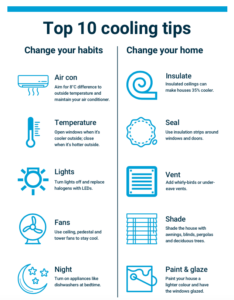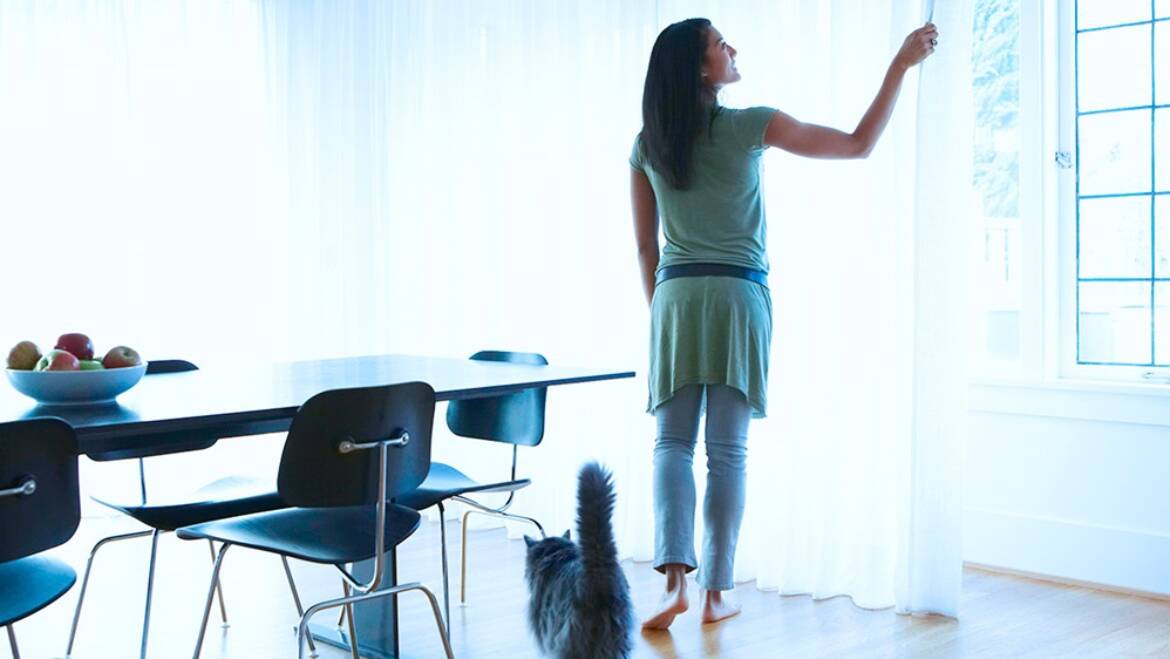Summer is here, which means larger energy bills from keeping your home cool. With a few small changes to your home – and your habits – you can keep cool while keeping a lid on your energy bills.
“You may only need these tips a few weeks of the year, but when you need them you’ll really need them,” says CHOICE’s cooling expert Denis Gallagher.

Woodhome Insurance Will Provide Up To 15 Homeowners Insurance Quotes In Just 15 Minutes!
CHANGE YOUR HOME
If you’re building a house, there are ways to make a new home energy efficient, but even for existing homes, there are a few hacks to keep cool in summer. Many of these will also keep your home warmer in winter – a bonus!
1. Insulate it
In-wall and in-roof insulation can help keep the cool in and the heat out in summer (and vice versa in winter). Uninsulated ceilings can make houses up to 35% hotter.
2. Seal it
To keep the cool air in and the heat out:
use insulation strips around windows and under doors
close off draughty fireplaces and unused pet doors.
3. Ventilate it
Consider adding roof cavity ventilation like whirly-birds and under-eave vents to remove some of the hot air.
4. Shade it
A well-shaded home can block 90% of the sun’s heat in warmer months.
Install artificial shading like:
Eaves
Pergolas
Awnings
Blinds
Shutters
Curtains
You can also plant deciduous trees near windows and glass doors – they’ll keep the sun off in summer but let it shine through in winter.
5. Glaze and paint it
Glazed windows will keep the heat out in summer and keep the warmth in winter.
Darker exterior paint colors may be in vogue, but they’ll make your home hotter. Consider lighter tones to help keep your house cool.
CHANGE YOUR HABITS
A few small changes in habit can help keep your home cooler in summer.
6. Turn the air con down
Setting your air conditioner to the Arctic might seem like the best way to beat the heat, but it can blow out your energy bill and increase wear and tear on the air conditioner’s motor.
You’ll generally get better efficiency from your air conditioner if you aim for a maximum temperature differential (the temperature difference between inside and outside your home) of around 8°C. So on a 32°C day, set your air conditioner to no more than 24°C.
On scorching days, most people will still want a cooler temperature, but for maximum energy efficiency, try not to go too far beyond the 8°C difference – each degree cooler adds about 10% to your air conditioner’s running cost.
Your air conditioner will be more efficient and effective if you give it some love, like cleaning the filter and ensuring the outside motor is well-shaded.
7. Keep an eye on the thermometer
“Use the environment to your advantage,” Denis says. “If you’re on the east coast, open your doors and embrace the southerly; if you’re on the west coast, make the most of the Fremantle Doctor.”
Use an indoor-outdoor thermometer to monitor the temperature difference inside and outside your home. If it’s cooler outside than in, open up all the doors and windows; if it’s hotter outside, close everything up to keep the heat out.
8. Lights out
“Turn off the lights if you’re not in the room – not only do they use energy to create light, they also create heat, which your air conditioner has to work harder to remove,” says Denis.
“Replacing halogen downlights with LEDs can help keep the temperature down and reduce your power bills too.” See our LED lightbulb reviews and buying guide.
9. Be a fan
“Ceiling fans make your body feel cool (although they won’t lower the actual room temperature) and so the effect is very immediate, focused, efficient, and cost-effective,” says Denis.
“Pedestal fans are the least effective option – but at times are unavoidable, particularly for renters on those unbearable days.”
But pedestal fans are cheap to run. We calculated that it would only cost around $30 to run a fan 24/7 for an entire summer. And you can choose exactly how and where to position them to maximize their effect, which you can’t do with ceiling fans. Check out our ceiling fan reviews.
10. Night-time is dishwashing time
Kitchen appliances can generate lots of heat, so if you wait until bedtime to turn on the dishwasher (or delay the cycle), you won’t have to deal with the heat in the kitchen. You can also turn your slow cooker on overnight so you’re not heating the house during the day – and as a bonus, you’ll have a delicious cooked lunch ready to pack in the morning.

